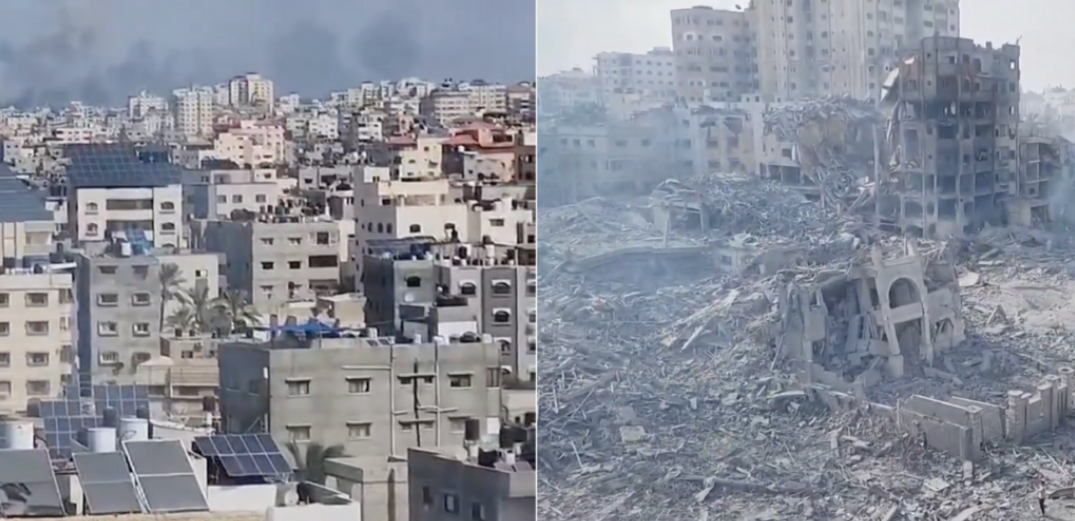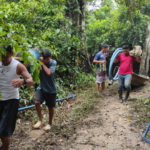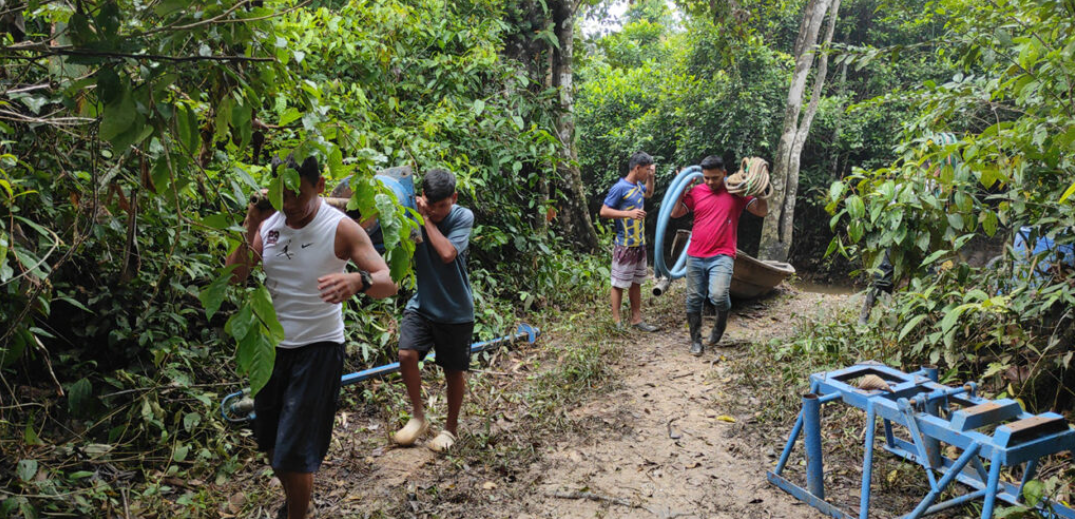About 900 Christians live in Gaza, yet they are missing from headlines and news reports about the war between Hamas and Israel.
Gazan Christians are glossed over simply as Palestinians, who themselves often are reduced to no more than Hamas. Most Palestinians, however, are caught in the crossfire of someone else’s war and are suffering the consequences.
We need to learn to look beyond the headlines. We need to look for who is missing from the reports and what’s not being said. Many times, our own brothers and sisters in Christ will be found in that void.
About the area
The Gaza Strip is a small place. At just 25 miles long and between 3.7 and 7.5 miles wide, Gaza would fit in the state of Texas between Dallas and Fort Worth with more than 10 miles to spare.
RELATED: Check out other headlines on crisis in Israel.
At almost 141 square miles in size, Gaza is comparable to Brownsville’s 145 square miles. However, more than 2 million people live in Gaza, while Brownsville’s population is not quite 188,000. This means Gaza’s average population density is more than 14,000 people per square mile, compared to Brownsville’s 1,295.
Gazans are hemmed between the Mediterranean Sea on the west, Egypt — who doesn’t want them — on the south, and Israel everywhere else. There is nowhere for them to flee Israel’s reprisals following Hamas’ surprise attack Oct. 7.
This means Christians in Gaza also have few places to flee.
While Christian tour groups in Israel are seeking safety and a quick exit from the country during its war with Hamas, Christians in Gaza do not have this option.
Gaza’s border is heavily controlled by Israel, with a fence and sections of concrete wall running the length of the land border — complete with underground sensors — and Israeli gunships patrolling the coastline. Two official exits are available — the military checkpoints Erez on the northern border and Rafah on the southern border of Gaza, both of which now are closed.
To leave Gaza through either point, Gazans must obtain a temporary military permit that takes a long time to receive and typically is granted to Gazan Christians only on Christian holidays. In the case of the Rafah crossing — which Israel has struck at least twice in the last few days — Gazans must obtain both Israeli and Egyptian military permits.
About the people
Gaza is also an impoverished place. The Christian Mission to Gaza website reports:
- Children age 14 and younger make up 45% of Gaza’s population, compared to less than 18% of the U.S. population.
- “Only 3 percent live past 65.”
- “Less than 10% of the water is fit to drink, with seawater, sewage and chemicals contaminating Gaza’s overloaded aquifer.”
- Before the war, electricity was “available for only about four hours a day.”
- “Three out of 10 people live below the $1.90-a-day poverty line.”
- “80% depend on charity for food.”
According to an email from Pastor Hanna (John) Massad, founder of Christian Mission to Gaza and former pastor of Gaza Baptist Church, the majority of Gaza’s 2 million people do not belong to Hamas or the Palestine Liberation Organization, but “are people who want to raise and support their families.”
As the war progresses, as the prospect for full-scale destruction looms, and as hospitals in Gaza fill to overflowing with the injured, many wonder if the above description of Gaza and its people will become a historical footnote.
Will we care at all, or will we continue to ignore the full story about Gaza in favor of headlines like Foreign Policy’s “A Guide to Palestinian and other Anti-Israel Factions?” Such headlines leave us thinking all Palestinians are Islamist militants, when in reality the majority are not and want nothing to do with Hamas.
Such headlines also tell us nothing of our Palestinian brothers and sisters in Christ.
Roots
Gazan Christians trace their roots “to the day of Pentecost (Acts 2:9–11),” Massad stated. Among the 14 ethnic groups named in Luke’s account of that day, Arabs were among them, Massad reminds us.
Today, there are three Christian churches in the Gaza Strip, only one of which is evangelical — Gaza Baptist Church. There also is an Orthodox and a Catholic church. Massad reported Gaza Baptist Church’s building sustained damage when Israeli munitions struck nearby.
Massad reported during an Oct. 11 interview many Christians in the Rimal neighborhood of Gaza City have lost their homes and are seeking refuge in the area because, as noted above, there is nowhere else for them to find refuge.
Caught in the vice
Massad describes Gaza as being like a prison. It is more so with the initiation of war. Al Jazeera reported Oct. 9 Israel is cutting off electricity, fuel, food and water to Gaza. An additional report by Al Jazeera the morning of Oct. 11 said Israel also is cutting off medical supplies. If anyone needed a picture of the sieges described in the Bible, this is it.
Gazan Christians are caught between Israel’s and Hamas’ rockets and within the vice grip of Israel’s “complete siege” of Gaza. They did not create the war, they do not want any part of Hamas, and yet they cannot leave or do anything about the situation. We need to see and understand this.
We need to see and understand our Gazan brothers’ and sisters’ plight the way Christ sees it.
As Massad said during his interview: “When you meet with the Lord Jesus, He put love in your heart, and He put the spirit of forgiveness, love for everyone … because all of us, all of us as human beings created in the image of God regardless of our ethnicity, our background, we can see God in each other.”
We need to have the Spirit of Christ, not the spirit of the Crusaders, Massad said. The Crusaders were “motivated by violence, hatred and revenge,” but the Spirit of Christ is “motivated by love. This is what we want, and this is what motivates our hearts,” he said.
In that Spirit, Massad called us to pray.
“The family we belong to as the body of Christ, we need to pray for brothers and sisters on both sides [Israel and Gaza]. … We belong to a wonderful family, and Jesus is the head,” he said.
We don’t always know how to pray, but “the Holy Spirit which lives inside of us … takes the agony deep inside of every one of us and lifts it before the throne of God our heavenly Father, who will respond “according to our needs and his will,” Massad said.
In that same Spirit — the Spirit of Christ — and regardless of theology or political position, I join with Pastor Massad in calling us to pray for all involved — Israel and Gaza.
And to do that, we need to know what’s happening to all involved.
EDITOR’S NOTE — This story was written by Eric Black and originally published by Baptist Standard.






